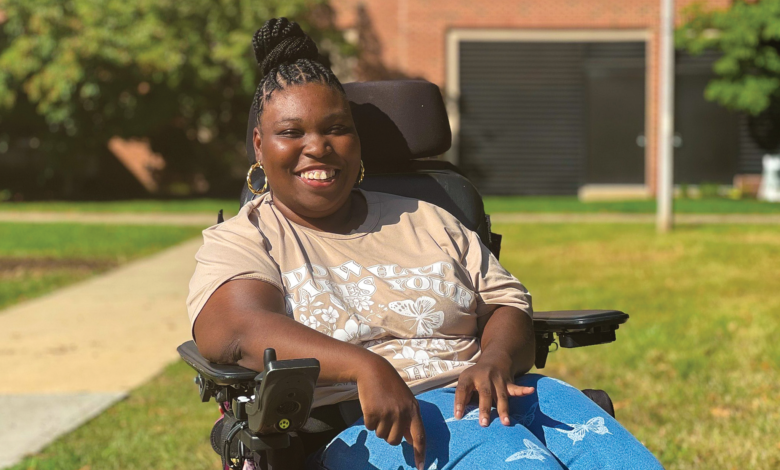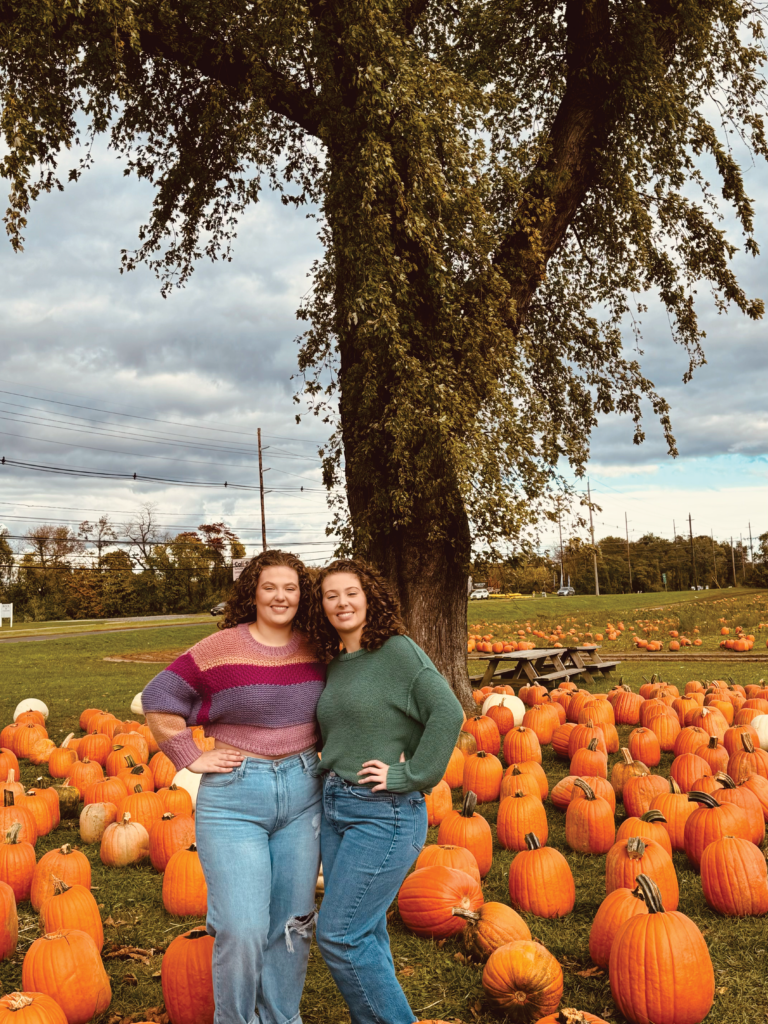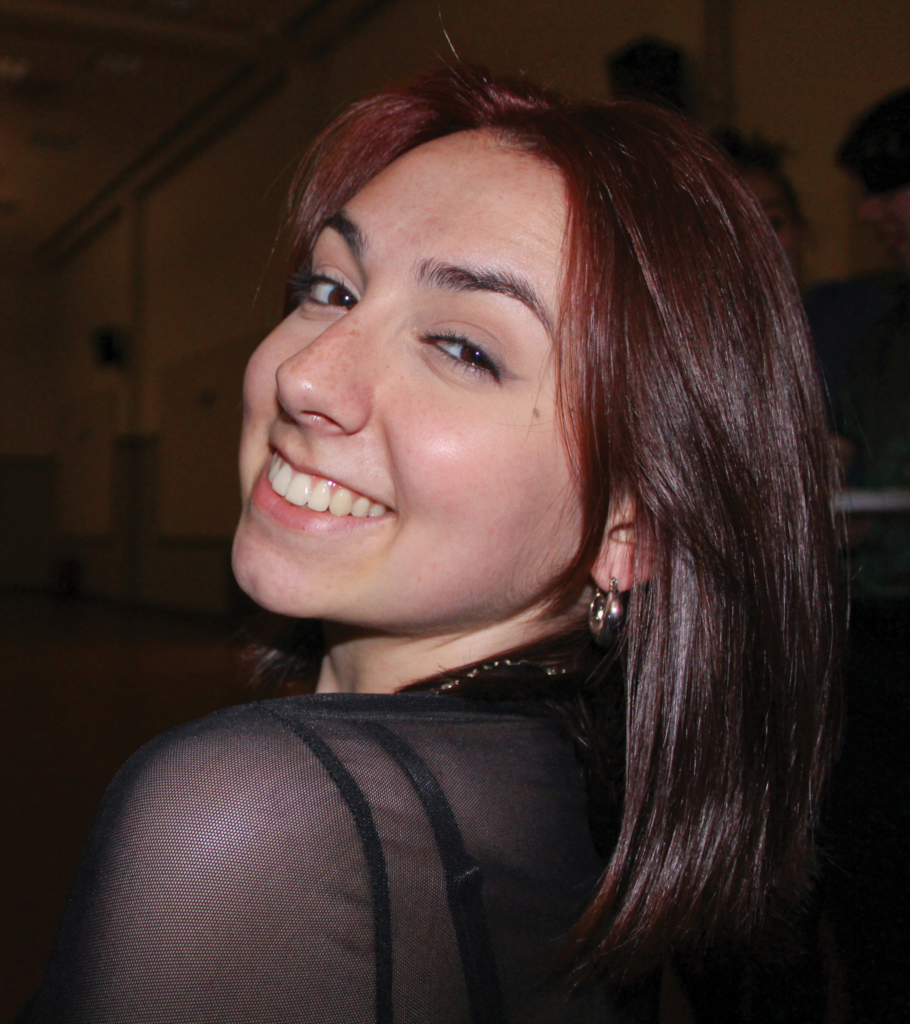
Accessibility’s impact on the Rider experience
By Tristan E. M. Leach
Like many university campuses, Rider is made up of a diverse group of people. Students come from different backgrounds, with a variety of interests and unique traits. Rider works to create spaces for every student, but most times it’s the bare minimum.
Students are drawn to the university for different reasons: from the small class sizes to a multitude of clubs and organizations. However, students with disabilities may have chosen Rider based on accommodations and what the university promised to provide.
Rider through a different lens
Marlene Brockington, a junior journalism major, is a student who had to look at Rider from an accessibility perspective.
Brockington, who was born with cerebral palsy and is a wheelchair user, had many factors to consider when applying to college. Being a wheelchair user means she needs safe and stable sidewalks to get around, access to elevators and enough time to get to each of her classes. For Brockington, every detail of how the campus is set up and what is available was taken into consideration.
“For the most part, yes, [campus] is accessible for a wheelchair user. I am able to navigate campus if there’s flat areas, then I’m able to get around in my wheelchair … there are obstacles with doors,” said Brockington.
Rider’s Student Accessibility and Support Services exist to help students with disabilities secure accommodations they need, however some still face obstacles.

Discounting of invisible disabilities
Twin sisters Felicia Roehm, a junior journalism major, and Francesca “Frankie” Roehm, a junior entrepreneurial studies major, were diagnosed with ADHD and dyslexia at 6 years old. While at Rider, they have run into issues with professors when making sure their accommodations are followed through.
When asked if they think faculty, staff and professors are well prepared for disabled students, both Felicia Roehm and Francesca Roehm expressed concerns.
“In my experience professors always make [my accommodations] seem like it’s a problem or a burden,” said Felicia Roehm. It’s not all professors: there have been some who have been really, really great. There have been some who make it seem like ‘One more freaking problem.’ … As if [the accommodations] are inconvenient to them … they’re not doing anything about [the accommodations] and they’re supposed to be helping you.”
Francesca Roehm said, “I’ve had professors be like, ‘You’ll finish the exam in time.’ I don’t care that I’ll finish the exam in time. I don’t care if you think it should be enough time. I am allotted this time, I’m allowed to have it. … It’s about me getting the time … if it’s an online test and I’m allotted two hours … I should get my two hours.”
Both Francesca Roehm and Felicia Roehm emphasized how important it is for professors to take the time to learn how to make accommodations in the classroom and on Canvas, a learning management website that hosts Rider’s courses. Francesca Roehm pointed out that many professors do not give the allotted extra time because they don’t make the effort to figure out Canvas’s online test feature.
The fear behind disclosing disability
For many students with disabilities the dismissal of their needs is nothing new. Some students feel that professors, faculty and staff continue this cycle of erasure.
Senior dance performance major Marissa Stellato, who uses she/they pronouns, has Tourette syndrome and an undefined processing disorder that they have learned to manage throughout their life. Stellato was given an individualized education program and kept the plan until sophomore year of high school. When auditioning for colleges, Stellato feared that if someone saw her disability it would mean losing a spot in the program.
“I was worried that somebody would see me tic and the professors would decide they don’t want me. It was a big insecurity thing,” said Stellato with a sad chuckle.

Tristan E. M. Leach/The Rider News
For activists on campus like Brockington and other students who are vocal about their disabilities, there’s hope that Rider will work even harder to accommodate the needs of every student who continues to pass through its doors.
As the campus community grows, so does the stigma around certain words and groups of people. Brockington hopes that more members of the Rider community will learn how they can contribute to the conversation of disability advocacy. She also hopes that people will unlearn the idea that being disabled and the word “disability” are bad.
“I personally define myself as disabled, and I would encourage people with any form of language, when you’re referring to anybody, ask the person what they want to be referred to as. I’m perfectly fine with [being called disabled], but the next person may not be,” said Brockington. “With me, my disability is very apparent. I’m in a wheelchair. Unfortunately in society any type of difference comes with stigma. Some people don’t want the stigma of being labeled as a disabled person. For me, I take pride in it. I prefer the term disabled versus special needs or any words people like to use. I know people mean well … disabled is not a bad word.”
Felicia Roehm is the opinion editor for The Rider News. She had no part in the writing or editing of this story.


